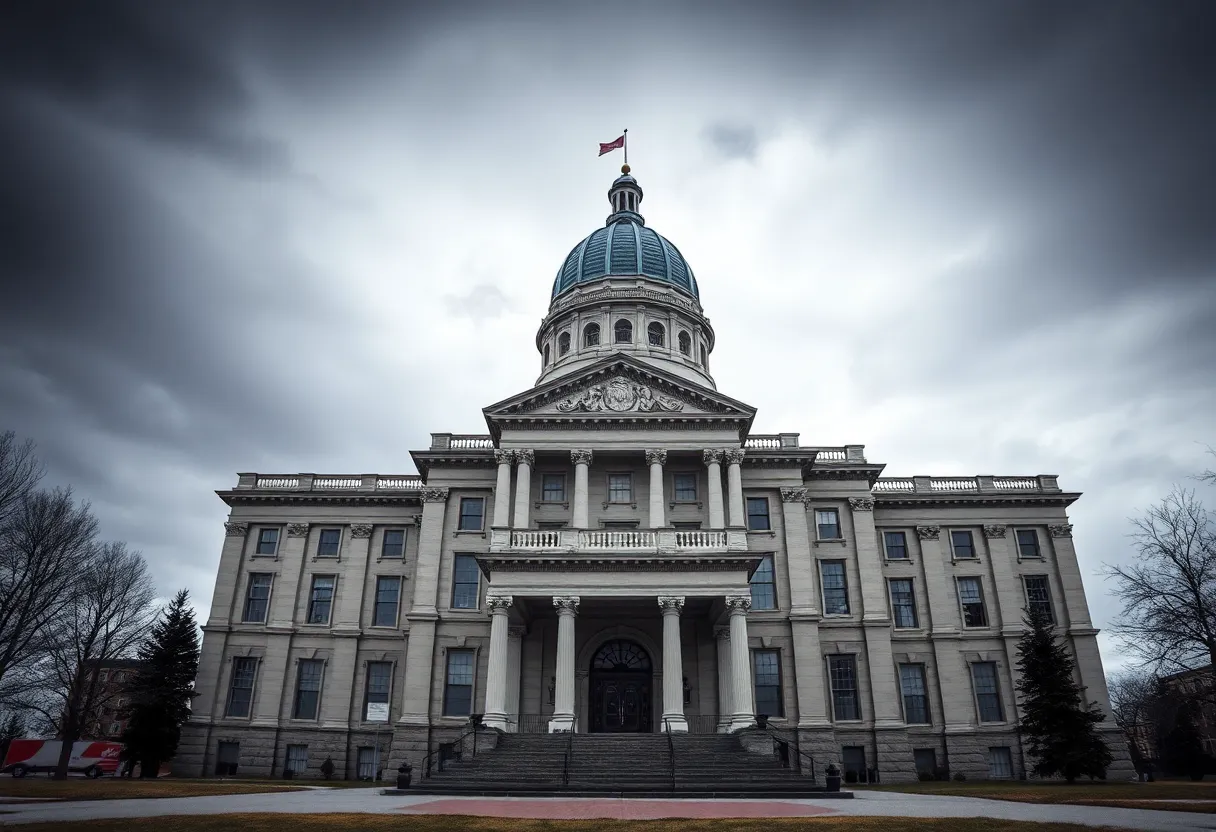News Summary
The Montana House of Representatives has advanced three bills, which could impede mesothelioma victims’ ability to seek justice against corporations responsible for asbestos exposure. This legislative move raises concerns among affected individuals and organizations advocating for their rights. The bills, supported mainly by Republicans, aim to shift liabilities and introduce strict requirements for pursuing claims. The situation highlights the ongoing struggle against injustices faced by citizens in Libby and elsewhere due to asbestos-related diseases.
Montana House Moves to Shield Corporations From Asbestos Liabilities
In a troubling development for the thousands of citizens impacted by asbestos-related diseases, the Montana House of Representatives has advanced three house bills poised to make it significantly more challenging for individuals to seek justice against large corporations. These legislative measures are a severe blow to mesothelioma victims and their desperate families striving for compensation following the devastating effects of asbestos exposure.
Libby: A Town Forever Marked by Asbestos Tragedy
The town of Libby, Montana, has become emblematic of the tragic consequences of asbestos contamination. For decades, residents have faced the deadly repercussions of living near the W.R. Grace and Co. vermiculite mine, which operated from 1963 until 1990. The mine’s insidious legacy has resulted in countless individuals suffering from malignant mesothelioma, asbestosis, and other debilitating diseases. Many local citizens have succumbed to these illnesses, and the fight for justice continues.
Although the legal battles surrounding W.R. Grace & Co.’s asbestos liabilities forced the company into bankruptcy some time ago, a myriad of other firms associated with the mine’s operations still faces pending lawsuits. Notably, BNSF Railway, linked to the asbestos exposure in Libby, was recently held responsible for compensating two mesothelioma victims’ estates with a hefty $4 million award. With hundreds of similar cases still pending against the railway, the newly passed legislation raises the pressing question of just how much longer these victims and their families will have access to justice.
The Controversial House Bills
The three bills that have sailed through the Montana House are House Bill 303, House Bill 302, and House Bill 301. These proposals seek to significantly alter the landscape for those pursuing mesothelioma claims against major corporations.
- House Bill 303: This bill would effectively strip mesothelioma victims of their ability to hold BNSF Railway accountable for their role in such tragic cases, allowing the company to deflect responsibility back to W.R. Grace.
- House Bill 302: This proposal wants to introduce additional trial requirements for plaintiffs wishing to obtain punitive damages, complicating the process even further.
- House Bill 301: This bill enforces a strict two-year limitation on property damage claims, putting a timeline on the pursuit of legal recourse.
Political Support and Opposition
The swift passage of these bills has been backed almost entirely by the Republican faction in the house, though a handful of members voiced concerns based on feedback from their constituents who are wary about the implications for justice. As a result, the Montana Trial Lawyers Association has emerged as a formidable opponent to this legislative push, battling against what they view as an unjustifiable attack on the rights of victims suffering from the horrors of asbestos-related injuries.
With the Montana Senate yet to schedule hearings on the bills, the legislation remains teetering on the brink of enactment, sending ripples of anxiety through the community of asbestos victims and survivors.
A Call to Action for Affected Families
For those grappling with a diagnosis of malignant mesothelioma or connected asbestos-related conditions, the situation calls for urgent action. Victims and their families are encouraged to seek help from dedicated patient advocates who specialize in navigating the complex legal landscape surrounding mesothelioma cases. Understanding the implications of these newly proposed laws could prove essential in the pursuit of justice.
Those in need of assistance are urged to reach out to knowledgeable resources that can help illuminate their options amidst the challenges posed by impending legislation.
In light of these developments, it is crucial for affected individuals to stay informed and engaged as the battle over justice for mesothelioma victims wages on in Montana.
Deeper Dive: News & Info About This Topic
HERE Resources
Disaster from the Skies: The Lingering Health Crisis from 9/11
Daughters Seek Answers Following Father’s Tragic Death from Asbestos-Linked Cancer
The Rising Financial Storm of Mesothelioma: How Patients are Fighting Back
New Asbestos Management Report Sparks Debate on Regulatory Changes in NSW
Trial Commences in Fort Lauderdale Over Mesothelioma Case Linked to Asbestos Exposure
New Bill in North Carolina Aims to Support Firefighters Facing Cancer Risks
House Bill 97 Aims to Expand Cancer Benefits for Firefighters in North Carolina
Family of Former Builder Seeks Answers After Mesothelioma Death
Veterans Still Struggling with Asbestos Exposure After Decades
The Hidden Danger Lurking in Older Buildings: Asbestos Awareness in Renovation Projects
Additional Resources
- AP News: Asbestos Trial in Montana
- Wikipedia: Asbestos
- Bozeman Daily Chronicle: False Asbestos Claims
- Google Search: Asbestos Liability Montana
- FreightWaves: BNSF Railway Asbestos Appeal
- Google Scholar: Asbestos Legal Cases
- Scripps News: BNSF Contributes to Deaths
- Encyclopedia Britannica: Mesothelioma



















